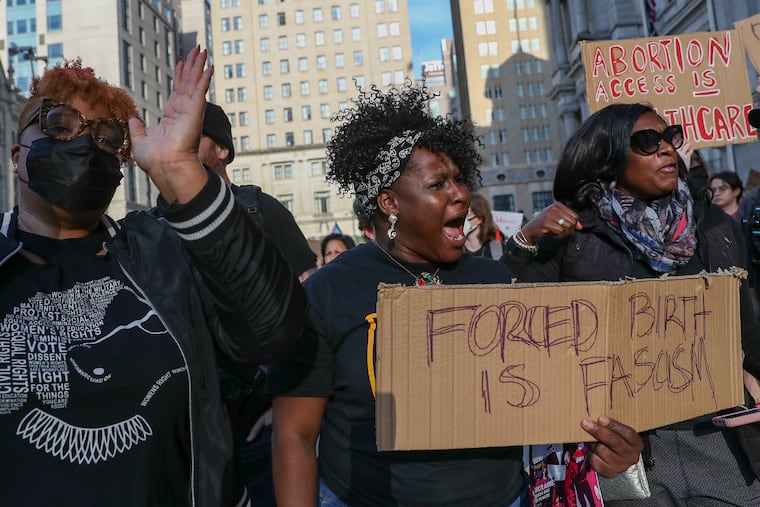Abortion restrictions are white supremacy in action
Although Roe made abortion legal, it failed to make it accessible to communities who could not afford this basic health care procedure.

While many people quaked on Monday night when news broke about the leaking of the U.S. Supreme Court’s draft majority opinion to overturn Roe v. Wade, I was not surprised. As the executive director of the Abortion Liberation Fund of PA, I have been preparing with my colleagues for this moment for years.
Anyone who has sought an abortion in Pennsylvania knows intimately of the courts’ growing hostility toward abortion access. In our state, roughly 85% of counties lack an abortion provider. Before they can have an abortion, pregnant people are forced to submit to state-mandated counseling to discourage them from the procedure and they must endure a 24-hour waiting period. Even under the supposed protections of Roe, Black, brown, and Indigenous people have struggled for this basic medical care. Just like many other states in the nation, in Pennsylvania there is no Medicaid coverage of abortion, so it is expensive — and that’s before you factor in additional costs for child care, lost wages, travel, and lodging.
“In our state, roughly 85% of counties lack an abortion provider.”
Make no mistake: Abortion restrictions are white supremacy in action.
The system of white supremacy creates and perpetuates poverty in Black, brown, and Indigenous communities. Although Roe made abortion legal, it failed to make it accessible to communities who could not afford this basic health-care procedure — or who were denied by the state from being able to use their insurance to pay. Limiting abortion access is part of the decades-old antiabortion strategy used to terrorize Black and brown communities. Although the 1973 Supreme Court decision assured the right to a legal abortion, this promise was broken for individuals living in poverty in Pennsylvania soon after. In 1977, Congress enacted the Hyde Amendment, which cut federal Medicaid funds for abortions; the Pennsylvania General Assembly followed suit with state Medicaid funds in 1985.
These restrictions are all part of the nation’s long history of enacting harm on and control over people of color. During slavery, Black women were vessels for reproductive control for the benefit of white slave masters and their families. Black bodies were used in experimental, dangerous surgeries that laid the groundwork for obstetrical advances. Abortion bans disproportionately harm Black people, who are three times as likely to die during childbirth as white people.
But now is not the time to panic. We must remain committed to supporting those who are most harmed by these restrictions. You can help by donating to your local abortion fund, or by hosting a gathering to talk about abortion and raise funds.
» READ MORE: Leaked Supreme Court draft ruling on Roe v. Wade: What you need to know
One particularly meaningful way to help is to volunteer to be a clinic escort. Antiabortion protesters will often congregate outside clinics, creating an intimidating atmosphere for people who are entering and exiting their appointments. Clinic escorts provide safety and solidarity. In Philly, you can submit an application to volunteer with our local, independent abortion providers at Philadelphia Women’s Center at thewomenscenters.com/volunteer/.
Abortion is older than this country and its courts. No matter what happens in the Supreme Court’s decision, people will need — and have — abortions. We must do our part to help ensure abortion is accessible to everyone, regardless of their reason, zip code, or income.
Elicia Gonzales is executive director of the Abortion Liberation Fund of PA.
Editor’s note: An earlier version of this article misstated the extent of Medicaid coverage for abortion procedures. Medicaid can be used to pay for abortions in 16 states.